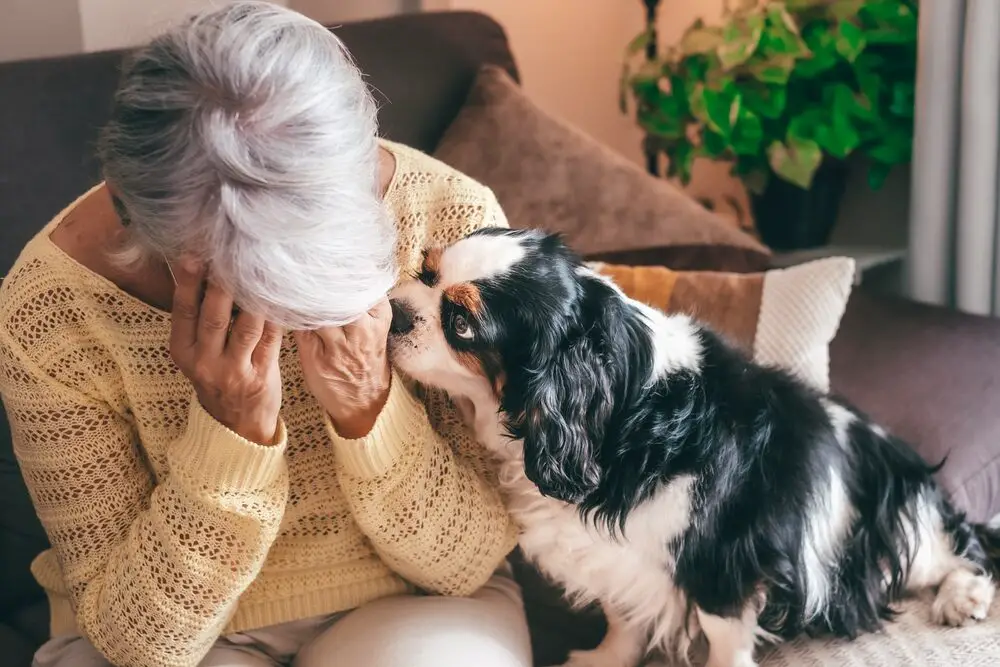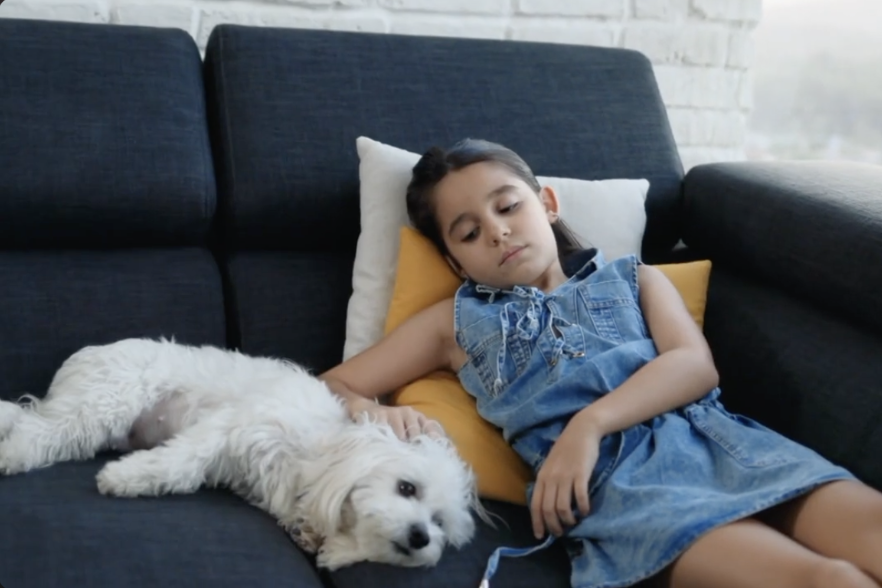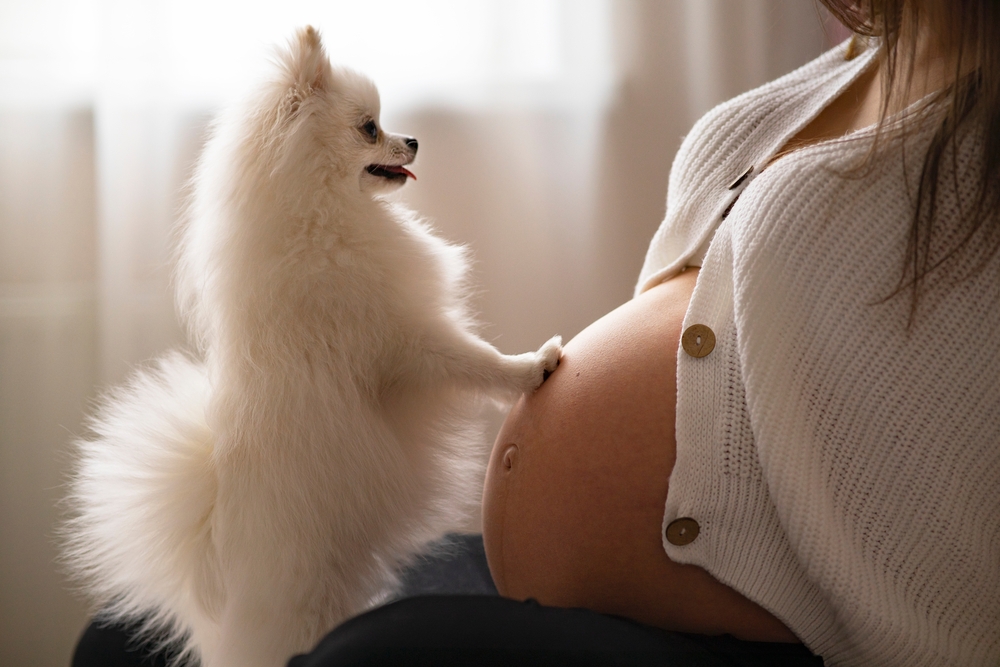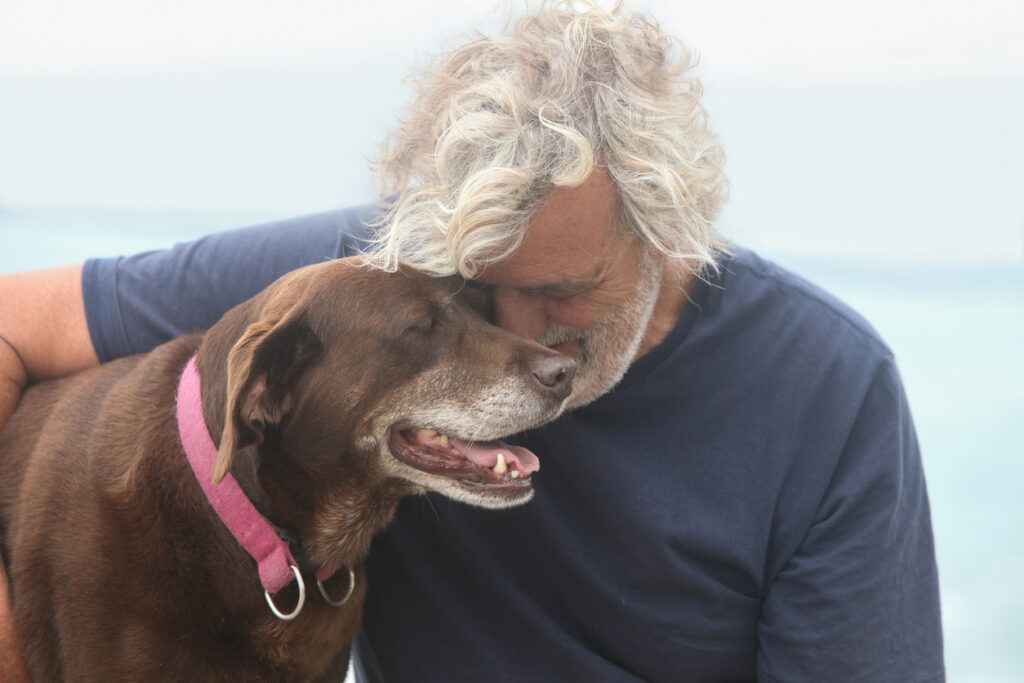1. Your Dog Knows When You’re Coming Home

Ever noticed how your dog seems to anticipate your arrival, sometimes waiting by the door before you even step onto the driveway? It’s not just a coincidence or good timing—science suggests your dog has an internal clock tied to your scent. As time passes, your lingering scent in the house begins to fade. When it reaches a certain low point, your dog instinctively knows you’re due back. Some studies even suggest dogs can recognize patterns in human schedules, associating certain sounds or environmental cues—like the school bus passing or the sound of distant footsteps—with your return.
But it gets even weirder. Some dogs of long-distance travelers have been observed perking up just minutes before their owner’s flight lands, as if sensing their presence miles away. While some theories suggest they’re picking up on subtle changes in the household’s energy, others believe it’s an extraordinary level of conditioning combined with their razor-sharp senses. And if you thought that was impressive, wait until you hear how your dog knows exactly when you’re feeling down.
2. Your Dog Knows When You’re Sad—And It’s Not Just Guesswork

Ever had a bad day and suddenly found your dog snuggling up to you with extra affection? It’s not just their sweet nature—dogs are masters at detecting human emotions. Scientific research has shown that dogs can recognize human facial expressions and voice tones, reacting accordingly. When you’re sad, your body releases different chemicals, and your breathing patterns change. Your dog picks up on all of it, even before you say a word.
In one study, dogs exposed to recordings of crying humans responded with signs of distress and sought comfort from their owners. But here’s the kicker: they don’t just detect sadness; they actively try to fix it. Many dogs will nuzzle, lick, or bring their favorite toys in an attempt to cheer you up, mimicking social bonding behaviors they use with their own kind. Their ability to sense and react to emotions is so strong that they’re even used in therapy to help people with PTSD and anxiety. And speaking of their super-sensing abilities, your dog may also know when you’re sick—sometimes before you do.
3. Your Dog Knows When You’re Sick—Even Before You Feel It

If your dog suddenly starts sniffing or paying extra attention to a particular part of your body, don’t ignore it. Dogs have been known to detect illnesses like cancer, diabetes, and even oncoming seizures—all thanks to their extraordinary sense of smell. Their noses are so powerful that they can detect tiny chemical changes in your body that signal disease, often before medical tests catch them.
In several documented cases, dogs have persistently nudged or licked moles that later turned out to be cancerous. Some medical alert dogs can sniff out drops in blood sugar levels in diabetic patients, alerting them before they even feel the symptoms. Their ability to smell chemical shifts in the human body is now being studied for early disease detection, and some hospitals even train dogs for this specific purpose. But it’s not just illness they pick up on—your dog can also sense something far more mysterious: your mood before you even realize it yourself.
4. Your Dog Knows When You’re Stressed—Before You Do

Stress isn’t just something you feel—it’s something you emit. When you’re anxious or overwhelmed, your body releases a mix of stress hormones, including cortisol, which changes your scent. Your dog can pick up on these subtle chemical shifts instantly, often before you’re consciously aware that you’re stressed. This explains why dogs sometimes act differently around their owners during high-pressure situations, even when no obvious signs of distress are visible.
Some studies have even shown that when humans experience stress, their dogs’ cortisol levels rise as well, proving that they don’t just detect our anxiety—they feel it with us. It’s why trained service dogs can intervene during panic attacks, offering comfort before the symptoms escalate. If you’ve ever had your dog stare at you intensely or refuse to leave your side during a stressful moment, they probably sensed your tension before you even acknowledged it. And if you thought your dog’s ability to read emotions was incredible, wait until you hear how they know exactly who you trust—and who you don’t.
5. Your Dog Knows Who You Like—and Who You Don’t

Dogs are social geniuses, and they don’t just pay attention to how you treat people—they watch how people treat you. Studies have shown that dogs are excellent judges of character and can pick up on social cues that reveal whether someone is friendly, trustworthy, or potentially dangerous. If you’ve ever noticed your dog being unusually wary of someone you feel uneasy around, there’s a good chance they’re mirroring your instincts.
In one experiment, dogs observed their owners struggling to open a container. When an unfamiliar person either helped or refused to help, the dogs later chose to accept treats only from the helper, ignoring the unhelpful person. This suggests that dogs don’t just watch—they form opinions about people based on their actions. It’s no wonder so many dog owners trust their pets’ instincts when it comes to new acquaintances. But if you thought that was impressive, your dog’s ability to sense one major life event might just blow your mind.
6. Your Dog Knows When You’re Expecting a Baby

Before pregnancy tests and ultrasounds, some women had their first hint of pregnancy from an unusual source—their dog. Many expectant mothers have reported their dogs suddenly becoming more protective, affectionate, or even sniffing their belly obsessively before they even knew they were pregnant. This isn’t just a coincidence. Dogs can detect the hormonal changes that occur during pregnancy, sometimes within the first few weeks.
Beyond the chemical shifts, dogs also pick up on behavioral changes, like increased fatigue, morning sickness, or altered routines. Some dogs even become fiercely protective, refusing to let strangers near their owners. And once the baby arrives? Many dogs instinctively adjust, recognizing the newborn as part of the pack. But your dog’s superpowers don’t stop there—some even seem to know when something much more final is approaching.
7. Your Dog Knows When Someone is Nearing the End of Life

It sounds eerie, but there are countless stories of dogs acting strangely around people who are close to passing away. Hospice workers have reported cases of dogs refusing to leave the side of terminally ill patients in their final hours. The most famous example is Oscar, a cat in a nursing home who predicted over 100 deaths, but similar cases have been observed in dogs. Scientists believe this ability comes down to a mix of scent detection and behavioral observation.
Dogs may be able to smell biochemical changes that occur as the body begins shutting down. They also pick up on human behaviors—like reduced movement, breathing changes, or shifts in routine. While it’s a bittersweet skill, it’s also a powerful reminder of how deeply connected dogs are to their humans. But before you get too emotional, let’s end on a lighter note—because your dog definitely knows something else about you: exactly how to manipulate you.
8. Your Dog Knows How to Get What They Want—And They’re Experts at It

Ever wonder why your dog gives you that perfect “puppy eyes” look right before you cave and give them a treat? It’s not just adorable—it’s intentional. Studies have found that dogs have evolved specific facial expressions that trigger a nurturing response in humans. This is why their “sad eyes look” is so irresistible—it activates the same emotional circuits in the brain as a human baby’s face.
But their manipulation tactics don’t stop there. Dogs learn through observation, so if they notice that whining or tilting their head gets them extra attention, they’ll keep doing it. Some even fake injuries for sympathy, only to miraculously recover when food is involved. So, the next time your dog gives you that pleading stare, just remember—you’re being played. And you love every second of it.


